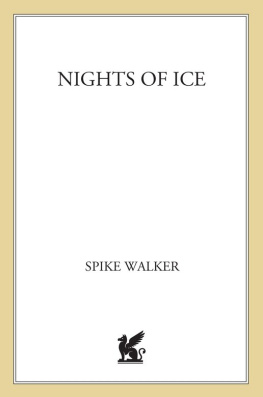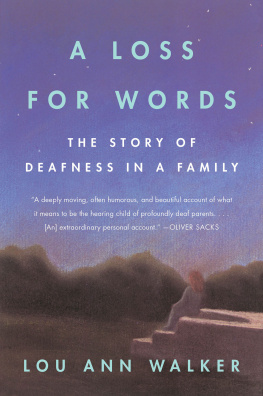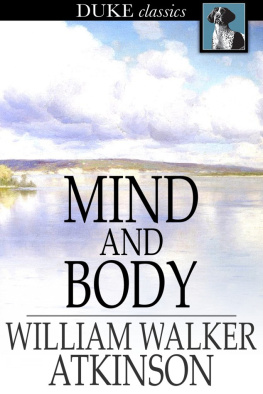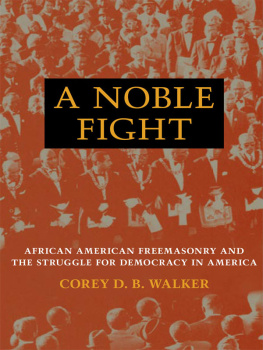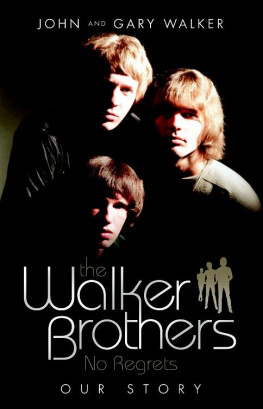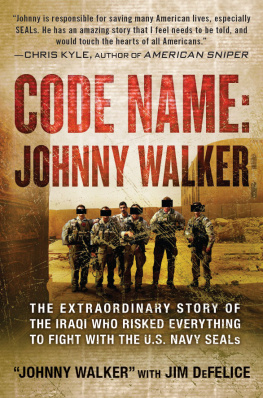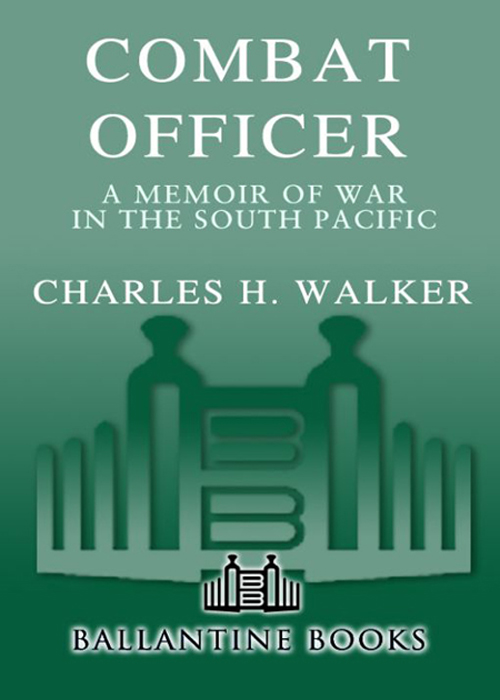
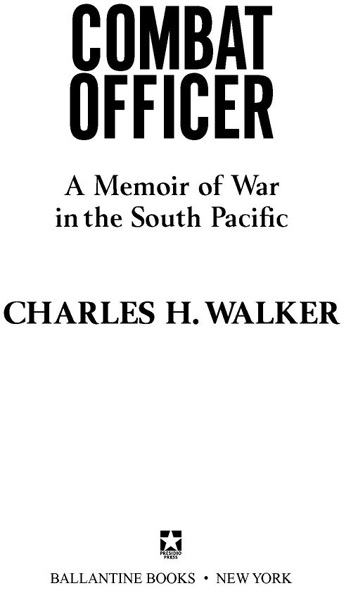
Table of Contents
ACKNOWLEDGMENTS
I wish to thank the following for their contribution and insight as warriors:
Charles G. Ross
Company E, 164th Infantry, on Fiji, Bougainville, Leyte, Negros, Japan. Also fought in Korea, Vietnam. Was awarded Triple Combat Infantry Badge. Served with infantry, ranger, airborne ranger, special forces, and reconnaissance units in three wars during thirty years of service. B.S. from University of Georgia. Inducted to Ranger Hall of Fame. Distinguished Public Service Award, Humanitarian Award.
Milton C. Shedd
Company E, 164th Infantry, also regimental reconnaissance officer, cofounder of Sea World. He was called The Walt Disney of the Sea. Founded Hubbs Sea World Research Institute. Helped create UCLA Science Center. Investment banker and chairman of Sea World for two decades.
William Byers
Company E, 164th Infantry, on Cebu, Negros, Japan. Educator before service. After service obtained MPS from Frost-burg College, Maryland. Spent his entire career in public education.
William Kiker
Company E, 164th Infantry, on Leyte, Cebu, Negros, Japan. Left Japan first sergeant reserve nineteen years. College, MBA, recalled to active duty as captain: Civil Affairs. Released as lieutenant colonel.
Zane F. Jacobs
Company E, 184th Infantry, on Cebu, Negros, Japan. Discharged to reenlist RA, discharged 1947. Reenlisted USN 1949 as aerographers mate striker, nineteen years USN missile test center. Litton Corporation 196971, to Atlanta as aviation flight forecaster, USN Meteorological Technician Fleet Numerical Weather Center for nineteen years.
INTRODUCTION
This book began as a brief history of my wartime years; it was to be for my children. With the inclusion of correspondence and stories from my longtime Army friends, it began to grow far beyond my original plan.
The cadre of our 164th Army National Guard Infantry Regiment was from North Dakota. Our replacements to fill the regiment to full strength came from nearly every state in the union, and Mexico.
We stopped the enemy at Guadalcanal, in the largest land battle fought there. We continued island-hopping until the landing in Japan after the surrender.
It was my good fortune to serve on Guadalcanal, supporting Easy Company with my platoon of H Company machine guns. Later, I had the further privilege of moving to Easy Company as commanding officer.
I have failed to mention officer replacements in this memoir, especially those who took over during the heaviest fighting in the Philippines. Lieutenants Byers, Moore, Baranowski, Torgeson, and Wright took over under desperate circumstances, serving expertly.
The soldiers of Easy Company were an unbeatable team. As an octogenarian, I fully realize the honor of having served with such outstanding, wonderful men in the defense of our country.
I will always remember those we left behind.
Books published by The Random House Publishing Group are available at quantity discounts on bulk purchases for premium, educational, fund-raising, and special sales use. For details, please call 1-800-733-3000.
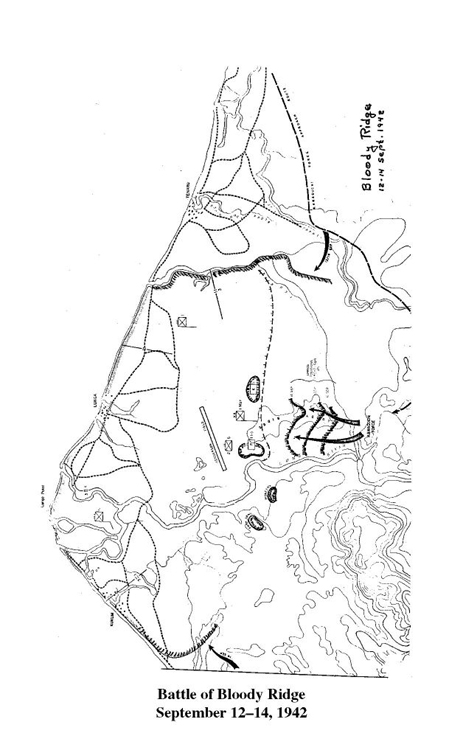
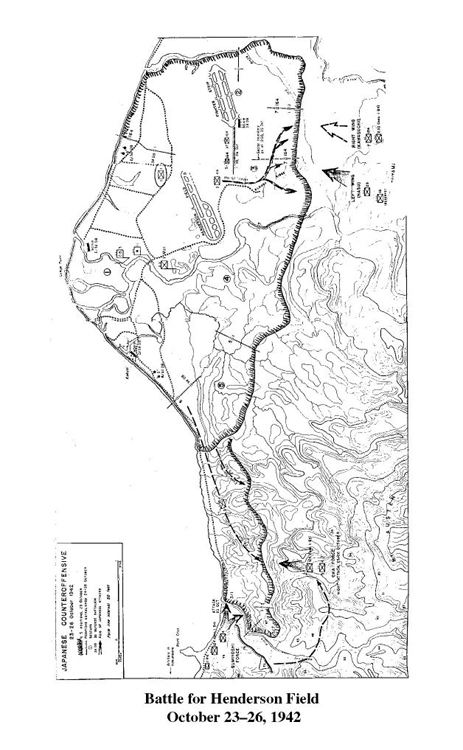
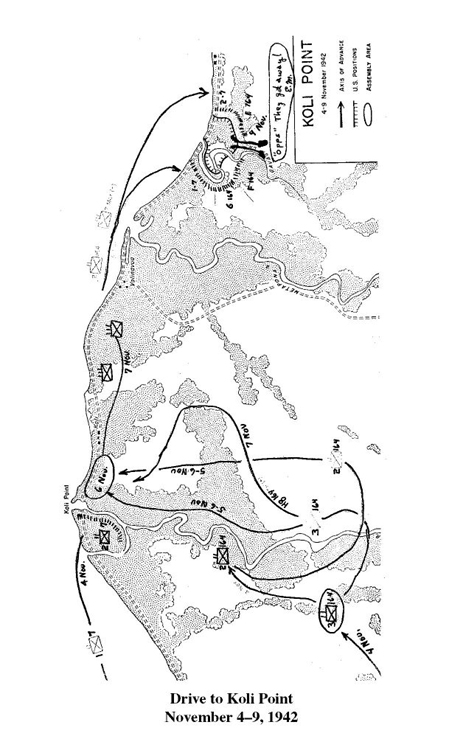
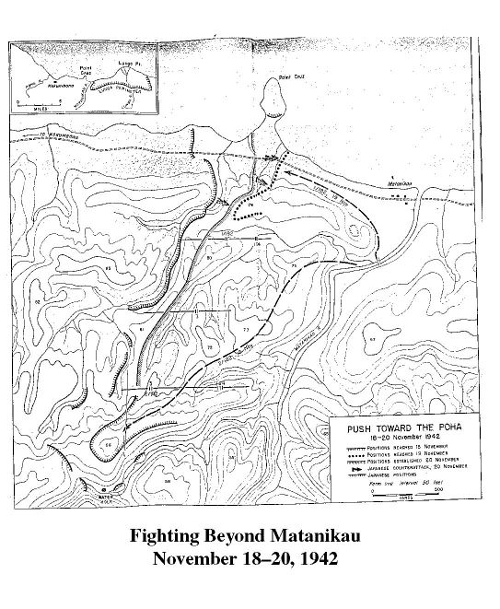
CHAPTER 1
October 7, 1942, New Caledonia, Southwest Pacific Area.
It was nearly 6 P.M. when five Company H officers traveled the rough highway of New Caledonia to a French family farm that catered occasional meals for American soldiers. Much of the only highway running from the capital, Noumea, to the far end of the island had been hewn from solid rock; it was a real spring-breaker on Army vehicles.
The farm lay a quarter mile from the highway, with each side of the lane lined with beautiful royal palms. John Gossett, my company CO (commanding officer), and I had made the dinner reservations the previous afternoon and we had arrived at the farm just as the husband and wife were in the process of butchering a hog. The wife had been busy collecting the blood dripping from the throat-cut animal, which hung from a hoist. Shed stirred the fluid constantly as she added an additional bit of flour to make blood sausage.
Seated the next evening in an airy room next to the porch, we were each served a full bottle of wine as an aperitif. Then there came rock oysters, which we were told had been peeled off rocks in the ocean when the tide was out. They were something like barnacles, I thought, but delicious, and they were packed in chipped ice. A question arose: Where did they get the ice? Then we had a salad of vegetables, followed by fried chicken. Next was a pork chop, then a steak, and then dessert. All in all, the seven-course meal required almost two hours to consume. When a bottle of wine was emptied, it was instantly replaced with another. Surfeited by the excellent meal and wine, we were all in wonderful spirits until we heard the sound of an approaching vehicle. It had to be trouble, because only one man knew our location.
The newcomer was Dick Hamer, a lieutenant recently assigned to our heavy weapons companythe officer we had left in charge of the company while we were absent. He was excited.
Ive got real news! Were to pack up for Guadalcanal, to load on ships the day after tomorrow. Youve got to get back to the company; theyve dumped a pile of ordnance and ammunition upon us. I didnt know what to do, so I figured Id better locate you all.
After we paid our hosts we headed back to our bivouac area to find the company in turmoil. We had twelve extra machine guns to degrease; two extra 81mm mortars to clean; scads of ammunition that had to be loaded into belts; and several tommy guns, Winchester 97 shotguns, and other specialty items to oil and pack.
John Gossett turned to me: Ill run up the hill to battalion headquarters and find out the details. Ill be right back.
Minutes later he returned with a long face. It seemed that both our battalion commander and his executive officer had reported to the hospital, supposedly sick. (We were to find out later from our battalion surgeon that eleven officers of our regiment had suddenly developed pains, possible appendicitis, or other ailments.) As our regiment was a North Dakota National Guard unit, many senior officers had political connections, even down to an occasional captain. In fact, after our arrival in New Caledonia, our regimental commanding officer, a banker in civilian life, was replaced by a West Pointer. Our banker had no experience at running a regiment in combat, but what of the man from the school along the Hudson? He had no combat experience, either.
My first thought upon Johns return was one of relief. Our battalion commander was a loudmouthed, uncouth drinker, a coward who covered his weakness by bluster and cursing. An additional shock came the next morning when we found he had withheld our 60mm- and 81mm-mortar training ammunition from us these past months. He had it all stashed inside a fenced enclosure behind his tent. Word had leaked down that our gasoline ration was in reality four gallons a day for each vehicle. Our battalion commander had withheld half of this in his enclosure. We would lose scores of barrels of gasoline that he had piled up; in the French civilians on New Caledonia would soon find and use them.
Next page

